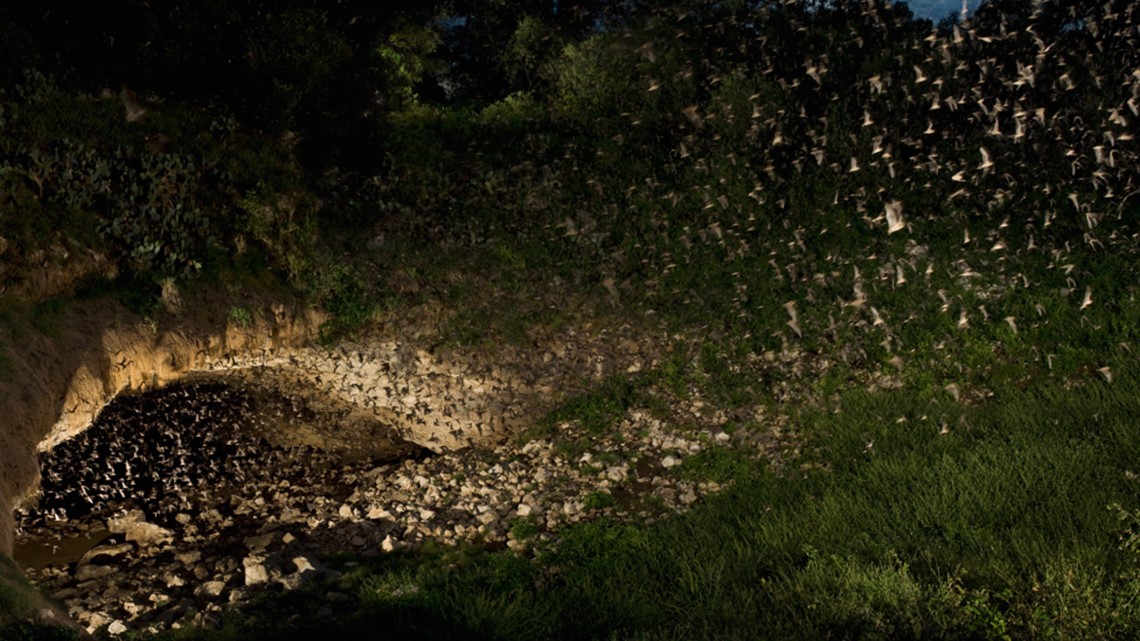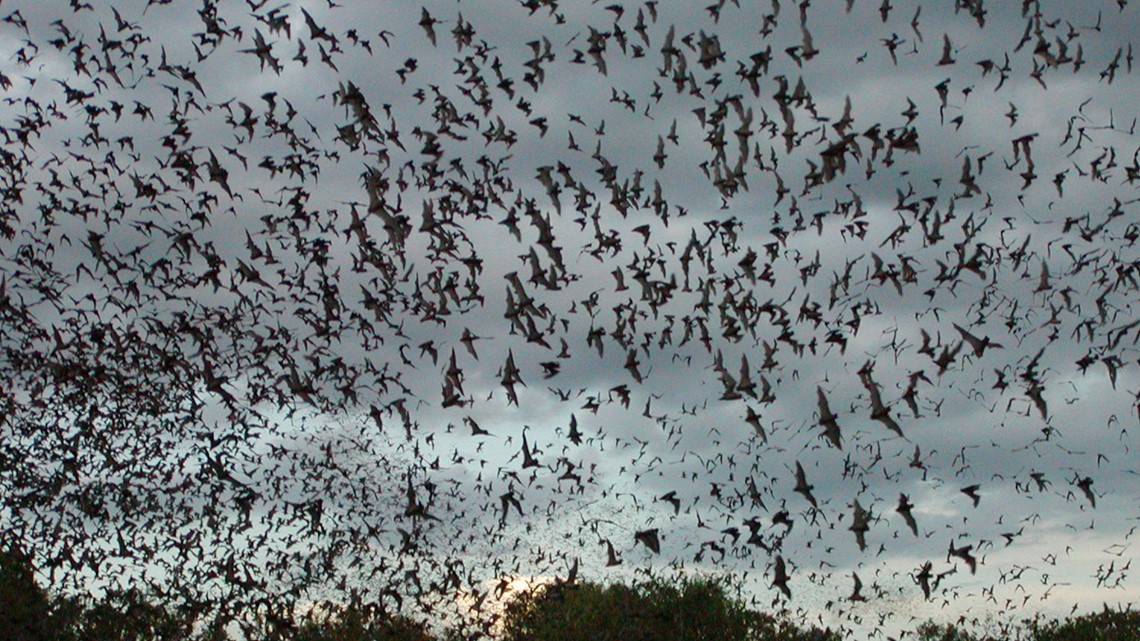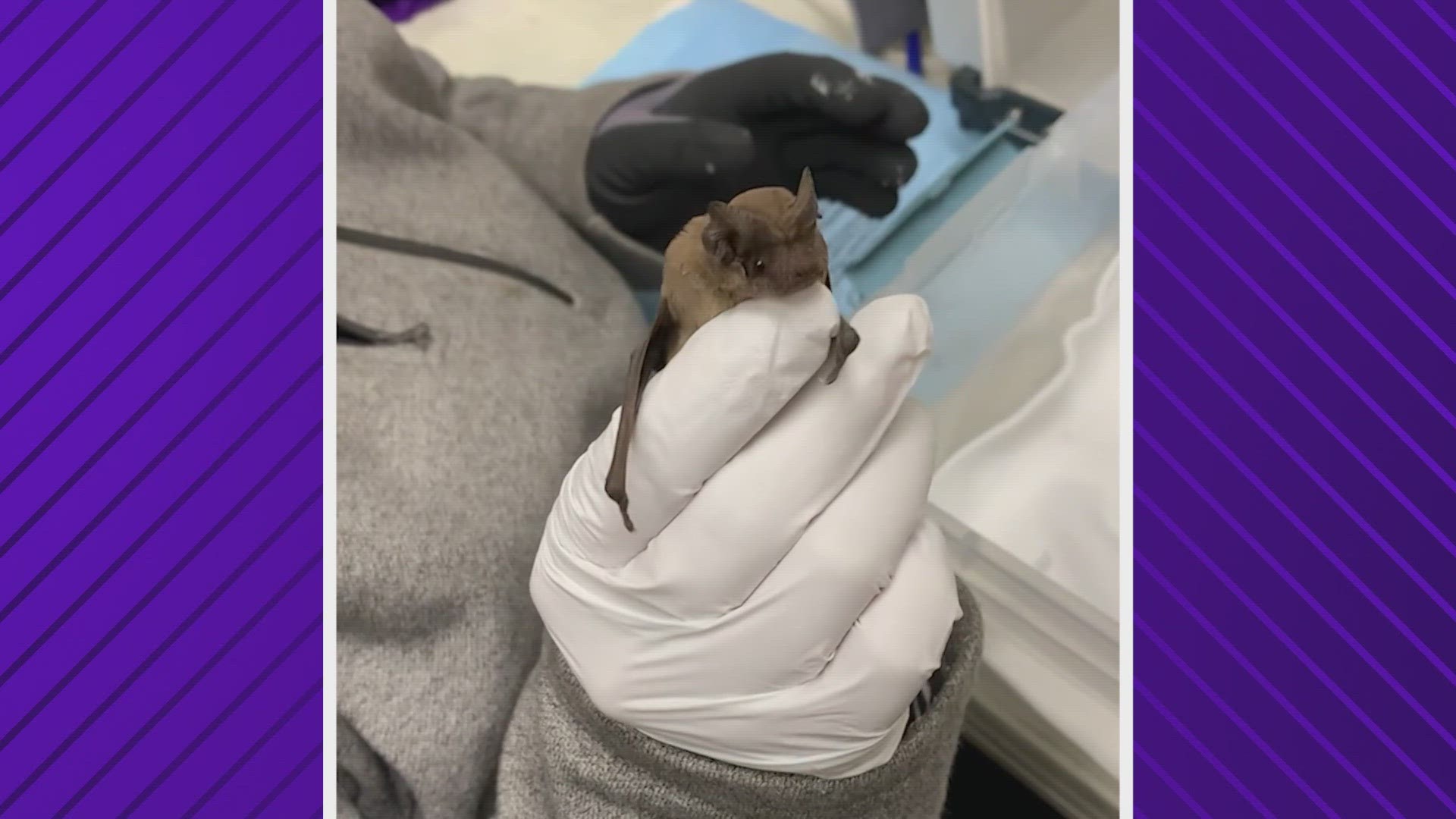HOUSTON — This brutally cold weather isn't just hard on people and pets, it can be deadly for bats.
Employees from The Houston Humane Society's Wildlife Center have been busy checking local bridges for cold-stunned bats.
They found more than 1,300 bats lying on the ground near the Waugh Street Bridge on Allen Parkway, just west of downtown Houston, and another bridge in Pearland.
The tiny bats appeared lifeless when they were rescued but they usually perk up almost immediately.
"One thing that's amazing about these bats is that once they are picked up and warmed, on the way back from the bridge, they usually start coming back to life," Mary with HHS explained.
At the wildlife center, members of the Bat Team place the winged creatures in incubators that are 95 degrees. Once they start warming up and moving around, they're given fluids with small syringes to rehydrate them.
Team members hope to release the bats back to their colonies when the weather warms up on Thursday.
The HHS Wildlife Center is home to the only bat rehabilitation team in the Houston area. If you see a cold-stunned bat, or any other wildlife that needs help, you should call their hotline at 713-468-8972.
In the meantime, experts offer the following tips to keep the bats safe until you get them to the Wildlife Center.
- Prepare a cardboard box for the bat: Poke air holes in the box using an object no larger than a pencil. Tape any holes larger than a pencil closed to prevent escape. Line the box with an old t-shirt or towel. (Avoid placing food, water, or grass in the box)
- Wear heavy gloves and do not handle the animal directly.
- Place the box on its side next to the bat, and use a stick or other object to gently push the bat into the box.
- Seal the box and any open flaps with packing tape so there are NO GAPS (bats can crawl out of very narrow gaps)
- Do not open the container to check on the bat at any point.
- Cover the container completely with a towel or blanket.
- Keep the animal in a warm, dark, quiet place. Darkness makes the animal feel more secure.
- Leave the animal alone. Human noise, touch and eye contact are very stressful to wild animals and can result in shock or even death.
- Call Houston Humane Society Wildlife Center at 713-468-8972 as soon as possible and leave a voicemail if they do not answer.
Fun facts about bats
- While bats can carry rabies, it is very rare with fewer than 0.5% contracting the virus.
- While some people are creeped out by the winged creatures, they're our friends because they eat thousands of mosquitoes, flies, wasps, flying ants and other insects each night. In fact, the Texas Parks and Wildlife Department determined that the value of insect control by bats in Texas is $1.4 billion per year.
- Bats that do not eat insects are often pollinators or fruit-eating bats that help with seed dispersal.


- Texas is the summer home for the largest colony of bats in the world. More than 15 million Mexican free-tailed bats live in Bracken Cave, on the northern outskirts of San Antonio, according to TPWD.
- Nine species of bats live in the Houston area and fall under three roosting styles: tree branch roosting; cavity roosting; and cave roosting.
- Many bat species can live up to 20 years while others have a lifespan of only a few years in the wild.


- Bats are the official flying mammal of Texas.
- Their top ground speed is 100 mph, the fastest horizontal speed of any animal.
- Bats weigh from .25 to .43 ounces.
- Bat wings have the same bones in them that mammals have in their hands, so they are like hands with really long fingers and webbing.
- Mexican free-tailed bats are polygynandrous breeders, meaning both sexes mate with multiple partners.
- Mothers give birth while clinging to the roost with both thumbs and one or both feet.
- By 4-7 weeks old, the pup will be full-grown, fully weaned, and independent.
Sources: Houston Humane Society and Texas Wildlife Department

